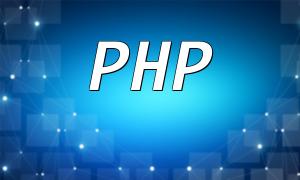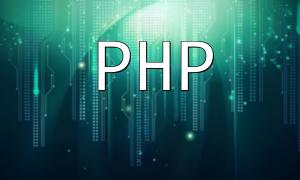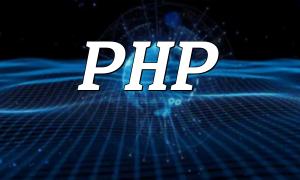With the rapid development of the internet, PHP has become one of the most widely used programming languages in web development. However, like other programming languages, PHP also has its fair share of common issues and challenges. In this article, I will share some of the common problems encountered during PHP development and provide solutions, which may help other developers improve their development efficiency and code quality.
High memory consumption is a common issue in PHP, especially when processing large amounts of data or performing complex algorithms. To optimize memory consumption, the following methods can be considered:
Reduce the use of variables: PHP variables are used to store and process data. Using too many variables consumes more memory. Therefore, it is recommended to minimize unnecessary variables and release those that are no longer in use.
Use PHP's garbage collection mechanism: PHP has an automatic garbage collection mechanism that can free up memory that is no longer in use. Developers can also manually trigger garbage collection to optimize memory usage.
Implement caching techniques: For large datasets that don’t change frequently, caching can reduce the need for frequent database access, which can, in turn, reduce memory consumption.
When PHP applications need to handle large-scale data or face high concurrency, performance can become a bottleneck. Here are some key points to consider for performance optimization:
Choose the right database engine: Selecting a database engine suited to your application's needs can greatly improve performance. For example, an in-memory database can be a better choice for applications that require fast read operations, while a distributed database is more suitable for high-concurrency write operations.
Use caching techniques: Caching can significantly reduce the number of database accesses, improving system response time. Tools like Memcached and Redis can be used to store frequently accessed data in memory.
Optimize the code structure: Avoid excessive loops and nested if-else statements, and try to simplify the code logic and algorithms to improve execution efficiency.
Security is a critical issue in PHP development. The following are some key considerations to enhance the security of PHP applications:
Database security: When interacting with databases, always use parameter binding or PDO to prevent directly concatenating user input into SQL queries, thus protecting against SQL injection attacks.
User input validation: Strictly validate and sanitize user input to prevent security issues such as XSS and CSRF attacks caused by malicious user input.
Password encryption: User passwords should be stored in an encrypted format. Use strong encryption algorithms to ensure that passwords are not stored in plain text, protecting user data from leaks.
In PHP development, maintainability and scalability are also important considerations. The following methods can improve code quality:
Follow object-oriented design principles: Use object-oriented design to encapsulate and organize code based on functionality, making it easier to maintain and extend.
Modular development: Break down tasks into independent modules, with each module being developed and tested separately. This reduces the coupling between modules and makes the codebase more flexible.
Avoid code duplication: Refrain from writing repetitive code. Use functions, libraries, and classes to promote code reuse, which reduces redundancy and enhances development efficiency.
Although PHP is an efficient programming language, issues such as high memory consumption, performance bottlenecks, and security vulnerabilities are common challenges for developers. By implementing appropriate optimizations and continuously improving technical knowledge, we can solve these problems and enhance the performance and security of PHP applications, ensuring a smoother development process.









